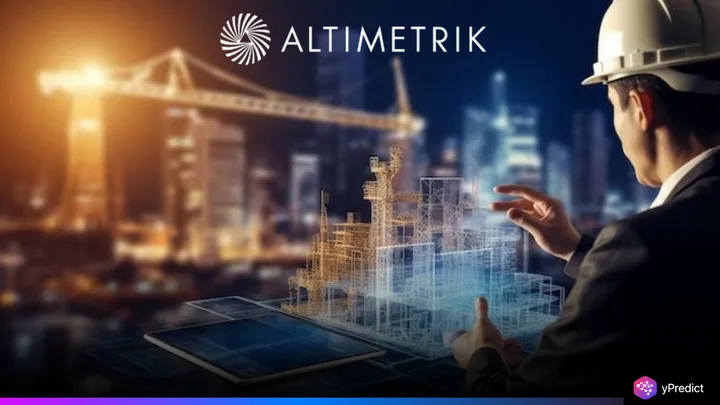
Altimetrik, a US-based global digital business services firm, has signed a deal to acquire an India-based SLK Software. The move aims to strengthen Altimetrik’s AI and platform engineering services, expanding its global client base. Both companies focus on AI-driven solutions, and their union is expected to help Altimetrik move closer to its goal of $1 billion in annual revenue.
Raj Sundaresan, CEO of Altimetrik, called the deal a “strategic acceleration” of their AI-first mission. The transaction, expected to close in late 2025, remains subject to regulatory approvals. While financial terms remain undisclosed, the combined business will support over 10,000 professionals worldwide.
Their shared focus: delivering digital transformation through data, automation, and product engineering. The acquisition unites Altimetrik’s rapid delivery approach with SLK’s deep customer ties, expanding reach in key sectors like banking, pharma, and manufacturing. For clients, the goal is clear: faster, more secure modernization of legacy platforms using scalable AI tools.
Altimetrik Taps SLK to Scale AI-Led Engineering Across Industries
Altimetrik’s acquisition of SLK Software adds a full-service tech stack to its existing AI-first platform. Founded in 2000, SLK is known for combining intelligent automation, analytics, and cloud-based delivery. The company helps clients, from insurers to investment firms, apply AI to modernize legacy systems and streamline operations. The acquisition brings together complementary strengths.
Altimetrik’s incremental, bite-sized model is designed to deliver fast ROI. SLK adds scale and customer intimacy, especially in regulated industries. “AI is the engine driving business value,” said Sundaresan. “But to enable an AI-first business, we need strong cloud infrastructure and product rigor.” SLK’s global footprint and leadership will remain intact post-acquisition.
According to SLK Founder and Chairman Parth Amin, “This isn’t traditional integration. It’s acceleration.” Both firms will maintain their agile cultures while merging engineering and data teams. The new joint entity will serve over 150 clients, including several Fortune 500 companies. Together, they aim to support rapid enterprise-wide digital transformation, grounded in real-world outcomes, not abstract strategies.
Merger Expands Reach but Raises Questions on Integration Pace
The deal positions Altimetrik to become one of the largest AI-first engineering firms in the sector. It also aligns with private equity firm TPG’s strategy of investing in enterprise tech platforms. TPG Board Member Vivek Mohan called the acquisition a “validation of AI’s role in business transformation.”
Still, merging two sizable firms, Altimetrik with 6,000 employees and SLK with its own global team, comes with challenges. These include aligning delivery models, blending leadership structures, and ensuring client satisfaction across diverse regions. Ajay Kumar, CEO of SLK, noted that both companies share a “customer-first” mindset, which could ease the transition.
He said, “We’re built to challenge the status quo. That won’t change.” Future plans include expanding joint offerings across the pharma, finance, and tech sectors. Key partners such as AWS, OpenAI, and Snowflake will continue to anchor the firm’s technology roadmap. The focus remains on delivering measurable impact, fast.
A Competitive Signal of AI-Led Consolidation in Services
Altimetrik’s acquisition of SLK Software signals more than expansion; it hints at a shift in the digital engineering landscape. As companies seek scalable AI tools grounded in real results, pure-play service providers are consolidating to meet rising demand. By merging talent, platforms, and customer networks, Altimetrik and SLK aim to lead this shift.
The new entity is positioned to deliver high-speed digital transformation with industry context and platform security. That mix could prove vital as clients look for trusted partners in AI adoption. For now, both companies remain focused on speed, scale, and precision. With regulatory clearance expected by late 2025, the road ahead is ambitious, but clearly mapped.





